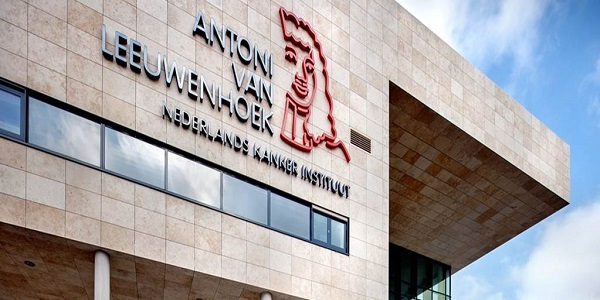The Netherlands Cancer Institute (NKI) is a research institute and specialized clinic, combining cancer care, research and international exchange of knowledge. Its core tasks are excellent care and innovation, national and international positioning, education and training, and research.
The NKI focuses on:
- Fundamental research: knowledge about cancer, basic mechanisms within cells
- Immunotherapy: mobilizing the immune system to treat cancer
- Image-guided therapy: operating room of the future, image guided radiotherapy
- Personalized medicine: goal-oriented customized treatment
- Survivorship: quality of life with and after cancer
It is the only dedicated cancer center in the Netherlands and maintains an important role as a national and international center of scientific and clinical expertise, development and training.
With such emphasis on scientific research and scientific development it should not be surprising that as information specialists we strive to support our researchers with access to scientific information. One of my experiences as an information specialist is that the word library is immediately translated by most people into “books and journals.”
Since our services aren't limited to providing just books and journals, we call ourselves a Scientific Information Service. This emphasizes that we support our researchers and other patrons in all scientific information questions they might have in any stage of the research lifecycle: planning, conducting, publishing and archiving.
This includes literature searching, teaching search and database skills, support with data management, bibliometric analyses, and of course providing them with the necessary scientific publications, in whatever size or form.
The NKI houses approximately 650 scientists and scientific support personnel, whose aim is cancer research. Many of NKI’s Ph.D.’s, postdocs and other researchers are working on fundamental research in their labs. Where conservative tools like journal articles and clinical lectures can be useful, JoVE can show how science is actually done.
Viewing the videos, being able to press play and pause, and in this way learning what is shown, are unique features that the more traditional — printed and digital — journals do not have. This added value to our library collection encouraged us to subscribe to several JoVE journal sections. One of our patrons told us that the video protocols gave him a much better “feeling” for the methodology and showed exactly how the procedures ought to be carried out. These — sometimes fundamental — details are often lacking from written methods and protocols.
When we first started with JoVE, I expected that there might be a decline in usage eventually. Wouldn’t all researchers have seen what they needed to see after a year? or two years? But as it turns out, this isn’t the case — rather the opposite. Over the past three years we have seen a steady increase in views of JoVE. Part of this increase can be explained by the fact that our institute has been growing and that the young researchers we welcome each month are keen to try out a new form of "reading'' an article, as compared to reading a traditional article in a printed or digital journal.
I am also quite confident that our continuous promotion of JoVE has added to its success in our institute. At the outset of our subscription we made sure to use the promotional materials JoVE provided us with and to write about JoVE in the quarterly newsletter, on our intranet and in our informational leaflet. During the short presentation we hold for all new researchers each month, we emphasize exactly those things that they might not consider when they hear the word library, such as the fact we have a video journal. Our researchers appreciate that they can get essential information in other ways than just by reading an article.
Over the years, we have changed our subscriptions to match the demands of the researchers. This process is fluent, and our JoVE contact is always willing to look for the best options and to offer trial access so we can find out if something really adds to the collection. For example, we had a request from our animal lab to have access to the Science Education section about lab animal research (which could be arranged very promptly). It’s nice that it is possible to customize our subscriptions, switch if necessary, and thus make sure that we get exactly what our patrons need.
We continue to customize our services to our patrons and to develop new services to connect to the scientific work being done. Data management, FAIR data, and open access are focal points for us. We try to match the way we deliver information to the way our patrons need it. Finding information, organizing it and making it accessible — be it in the workplace or at home or with mobile devices — is the core of our business.




